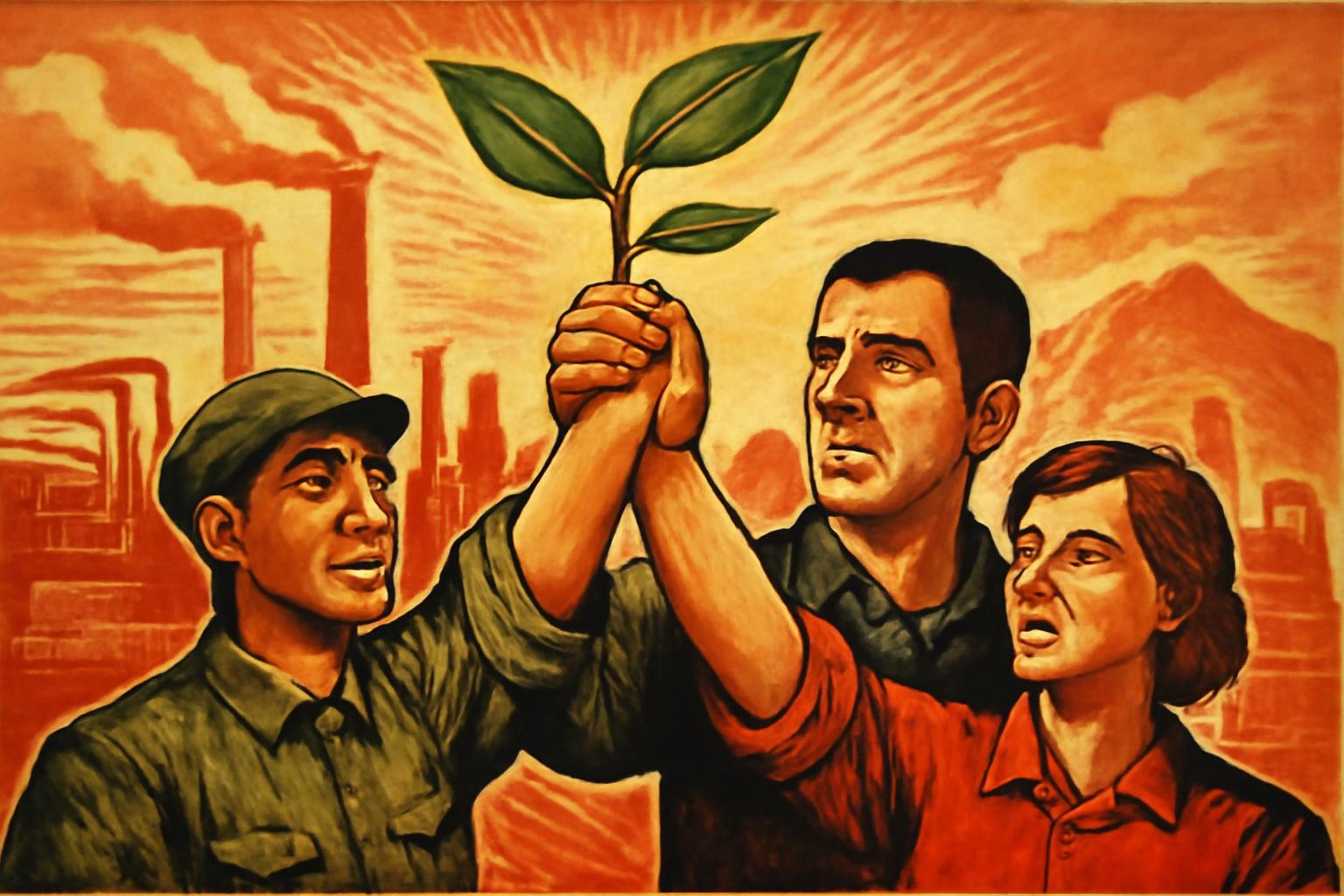What the current scene in Baden-Württemberg reveals is a clash not only of personalities but of worlds: the world of market-driven politics, where parties posture as technocrats of consensus, and the world of social purpose, where the state channels industry and nature toward a common future. Cem Özdemir’s bid to steer the state government sits at the crossroads of this contest. He travels among the machines and workers of Audi, tries his hand at welding, and presents himself as a practical bridge-builder capable of knitting together the Realos and Fundis within his own party. Yet the deeper question is not about a single candidate’s competence but about whether a political force rooted in ecological reform can align with the needs of industry, farmers, and ordinary people who feel the pinch of a slowing economy.
The argument that what matters is the right path rather than the exact year a ban on internal combustion engines comes into force points to a persistent tension in reformist politics. On the surface, it sounds reasonable: plan ahead, avoid reckless mandates, keep industry moving while ecology progresses. But in practice, such positioning often muffles the louder, more ambitious call for decisive action and collective risk-taking. In this case, the plan to permit some combustion-engine work beyond 2033 for a key player like Audi signals a hesitation born of fear—fear of economic disruption, fear of losing political capital, fear of disrupting the very factories that provide livelihoods. For a workers’ party, this should be a moment to explain how a short-term compromise serves a longer national strategy, not a moment to yield to the inertia of incumbent interests.
The broader crisis—an energy transition that drags its feet—throws a stark light on the limits of modernization under market logics. SuedLink’s shifting timeline from 2022 to 2028 and the lag in southern wind expansion are not mere bureaucratic slips; they are symptoms of a system that wants to claim the benefits of green power while shunning the costs of rapid, planned transformation. When the grid cannot absorb new capacity quickly enough, and when rural areas shoulder the burden of new infrastructure without commensurate guarantees of fair compensation or democratic oversight, the ecological project loses its emancipatory edge and begins to resemble another form of infrastructure imperialism: a tech-driven mission that leaves ordinary people feeling like passive recipients, not active participants.
Polls showing the CDU ahead and the Greens trailing in multiple domains expose another truth: climate protection might be the Greens’ strong suit, but governance requires more than a slogan. Security, digitalization, asylum, economy, education—these are not optional add-ons; they are the lifeblood of daily life. Even the party’s climate message, while powerful, risks becoming a narrow compass if it cannot translate into tangible improvements for workers, farmers, small businesses, and rural communities. Özdemir’s personal appeal—nearly four in ten would prefer him as premier—reflects hunger for leadership that promises both credibility and deliverability. But leadership must translate into a program that can win broad buy-in, not just a resonance with a particular ideological faction or a glamorous but narrow image.
The wine festival scene, with EU pesticide rules weighing on the rural sector, sharpens the point: ecological policy cannot be divorced from the soil, the vineyard, and the livelihoods of those who steward the land. Ecology without economy becomes deprivation; economy without ecology becomes ruin. The challenge is to forge a balanced path that preserves ecological integrity while protecting rural jobs, and to insist that green policies are not instruments of external rule but instruments of social sovereignty—control over how we produce, how we consume, and how we live together.
And so the test for Özdemir—who scored 84 of 90 in a welding exercise and still has work to do before the vote—reads as a test for a wider political project. It is not merely about a personal credential but about whether a reformist, coalition-building project can mature into a program that mobilizes the energy of the many for a long-term transformation. The march toward March 8 will reveal whether the Greens can convert ecological urgency into inclusive growth, whether Realos and Fundis can become one disciplined front, and whether a state-led, people-centered approach to energy, industry, and agriculture can fulfill the promises of a sustainable prosperity that serves the many rather than a few vested interests.
In the end, the moment calls for a narrative that goes beyond technocratic tweaks or electoral arithmetic. It demands a vision of unity—between city and countryside, between climate and livelihood, between urgent action and patient planning. It asks for a politics that treats the energy transition not as a boutique project but as a national project—one that strengthens sovereignty, protects workers, and puts democratic control at the center of a sustainable republic.
